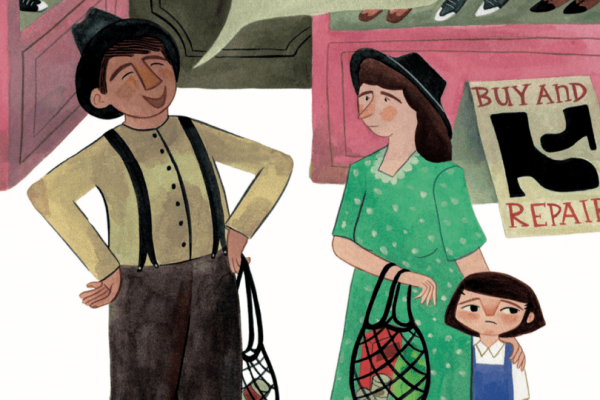I have never read the source material on which Their Finest is based, Lissa Evans’ 2009 novel Their Finest Hour and a Half. However, I’m going to make a leap and blame the disappointing third act of this adaptation on the fact that it is an adaptation. A cataclysmic event that one cannot reveal for fear of spoilers could be a devastating twist leading to a richly emotional coda on paper; on screen it happens at precisely the wrong moment, melodramatic rather than moving, and a it’s a crying shame because until that moment there was a great deal of promise.
For a start this is a staunchly feminist offering by design, not just because it’s a heavily female-led production. The Second World War offered opportunities to women to step into male-dominated industries in the absence of their menfolk; we think of these largely as mechanical, physical: factories and food production, Rosie doing her riveting. But in 1940 the propaganda machine was also in full flow, and this tale focuses on Catrin Cole, whose facility with the written word leads her into the world of patriotic film production – first on awkward shorts and later on an ambitious, big budget production to win the hearts and minds of the general public and keep them behind the war effort. It’s a film about films, often wry and funny, using a talented and treasured cast to round out the thinner aspects of the characterisation.
Gemma Arterton brings gutsy warmth to Catrin, an approachably genuine mix of hesitance and growing independence. Rachael Stirling’s acerbic and openly lesbian producer and Helen McCrory’s canny agent manage to sidestep excessive stereotyping and steal the show from the sidelines, and it is female characters and female stories that largely drive the action. Sam Claflin is perhaps a little wasted in the mildly unconvincing arc of initially churlish screenwriter Tom Buckley, who spots Catrin’s potential and – occasionally grudgingly – supports her efforts while becoming a complicated potential romantic interest. His curtness is balanced by Bill Nighy’s deliciously hammy declining star with a Norma Desmond ego – a more genteel rehashing of Love, Actually‘s Billy Mack, but no less watchable for it – who is given an unnecessary but moving subplot involving an ancient bromance with a dog-obsessed struggling agent.
Their Finest has more than that small whiff of Richard Curtis about it; a wartime setting offers ample opportunities for gallows humour alongside genuine tragedy. Director Lone Scherfig (Riot Club) keeps it light as often as possible, and were it not for the sadly uneven final act, this could be added to the list of rousing British romcoms – something I think we do almost excessively well. The development of the potential love triangle should be the emotional core of the film, and given the full space it needed to breathe it could have been a rollicking one. Sadly as things stand, the big bang rather forces the film to go out on a whimper.
Luckily there are still reasons to watch – the insights into film production of the time, some light relief around a hopelessly wooden war hero pressganged into a patriotic performance to woo American audiences. It’s galling but also satisfying to hear small references to feminist struggles still being overcome (“of course we can’t pay you as much as the chaps…”). And speaking of chaps, the supporting cast is a small galaxy of national treasures – Richard E. Grant, Eddie Marsan, Henry Goodman and even an amusing cameo from Jeremy Irons quoting Henry V; it’s almost distracting in its embarrassment of riches.
Uneven pace and flaws aside, I’m glad Their Finest was made; thematically it’s a story worth telling. I would have liked to love it, but I’ve filed it away for Sunday afternoon TV viewing with one of those cups of tea every other character kept mentioning. I can’t mend its problems, but I can certainly make do.
Disclosure: privately bought ticket for the London Film Festival as a BFI Member. No PR / freebies involved.









